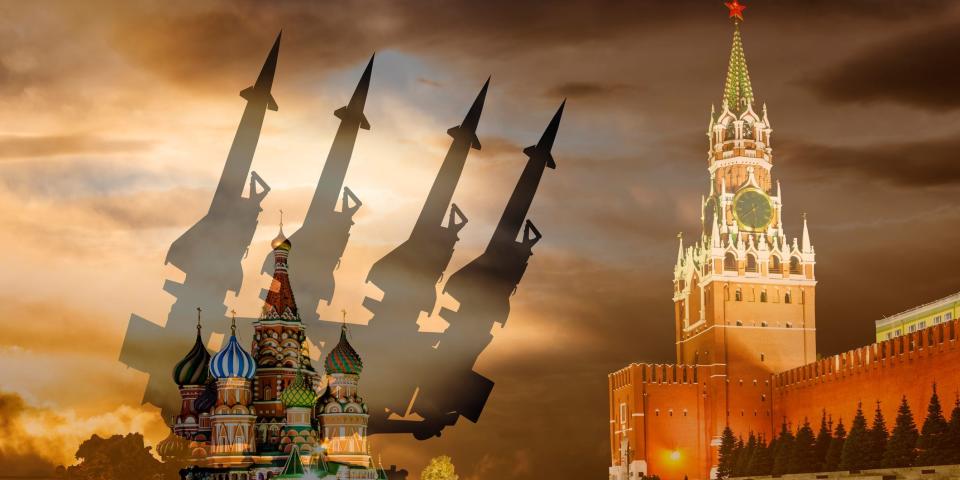Russia's economy is so driven by the war in Ukraine that it cannot afford to either win or lose, economist says

Russia's economy can't afford to win or lose the war in Ukraine, one economist says.
That's because Russia can't afford the cost of rebuilding and securing Ukraine.
The cost of repairing its own nation is already "massive," Renaud Foucart says.
Russia's economy is completely dominated by its war in Ukraine, so much that Moscow cannot afford either to win or lose the war, according to one European economist.
Renaud Foucart, a senior economics lecturer at Lancaster University, pointed to the dire economic situation facing Russia as the war in Ukraine wraps up its second year.
Russia's GDP grew 5.5% year-over-year over the third quarter of 2023, according to data from the Russian government. But most of that growth is being fueled by the nation's monster military spending, Foucart said, with plans for the Kremlin to spend a record 36.6 trillion rubles, or $386 billion on defense this year.
"Military pay, ammunition, tanks, planes, and compensation for dead and wounded soldiers, all contribute to the GDP figures. Put simply, the war against Ukraine is now the main driver of Russia's economic growth" Foucart said in an op-ed for The Conversation this week.
Other areas of Russia's economy are hurting as the war drags on. Moscow is slammed with a severe labor shortage, thanks to young professionals fleeing the country or being pulled into the conflict. The nation is now short around 5 million workers, according to one estimate, which is causing wages to soar.
Inflation is high at 7.4% — nearly double the 4% target of its central bank. Meanwhile, direct investment in the country has collapsed, falling around $8.7 billion in the first three quarters of 2023, per data from Russia's central bank.
That all puts the Kremlin in a tough position, no matter the outcome of the war in Ukraine. Even if Russia wins, the nation can't afford to rebuild and secure Ukraine, due to the financial costs as well as the impact of remaining isolated from the rest of the global market.
Western nations have shunned trade with Russia since it invaded Ukraine in 2022, which economists have said could severely crimp Russia's long-term economic growth.
As long as it remains isolated, Russia's "best hope" is to become "entirely dependent" on China, one of its few remaining strategic allies, Foucart said.
Meanwhile, the costs of rebuilding its own nation are already "massive," he added, pointing to problems like broken infrastructure and social unrest in Russia.
"A protracted stalemate might be the only solution for Russia to avoid total economic collapse," Foucart wrote. "The Russian regime has no incentive to end the war and deal with that kind of economic reality. So it cannot afford to win the war, nor can it afford to lose it. Its economy is now entirely geared towards continuing a long and ever deadlier conflict."
Other economists have warned of trouble coming for Russia amid the toll of its war in Ukraine. Russia's economy will see significantly more degradation ahead, one London-based think tank recently warned, despite talk of Russia's resilience in the face of Western sanctions.
This story was originally published in February 2024.
Read the original article on Business Insider

 Yahoo Finance
Yahoo Finance 